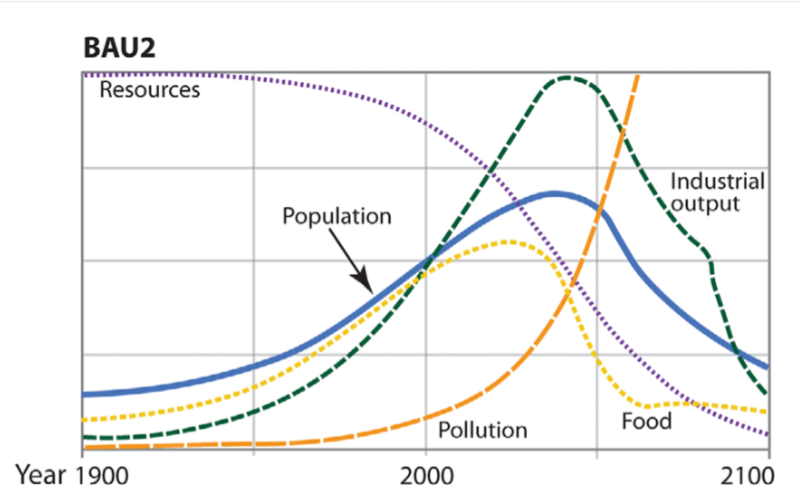Why Humans Don’t Care About Nature – Part I

This is Part I of a 3-part series. Go to: Part II, Part III
Looking at our relentless overexploitation of nature and especially of biodiversity, we have to ask the question: “How did we get here?”. Why do so few people care about protecting nature? Why has this not changed in 60 years since the beginning of the conservation movement? Why has this not changed given how much worse the situation is today, with 1 million species at risk of extinction?
To explore the answers to these questions we need to acknowledge that this lack of caring is universal across developed and developing countries. It is also shared across the political spectrum and across socio-economic groups. We might want to blame capitalism and business, but businesses do not operate in a vacuum. Policy settings are made by politicians on the advice of public servants, think tanks, lobbyists etc., but ultimately with the consent of the electorate. Businesses and markets are embedded in a framework of laws, regulations, power structures, institutions, tax rules, market mechanisms and subsidies which have come about as a result of political choices.
What matters here is that these structural settings have been going through phases and geographical variations as the flavour of capitalism has shifted over the decades and centuries. But in one, crucial respect they have always been going in the same direction since the advent of the industrial revolution – they favour economic growth and unchecked extraction of natural resources over any attempts to create balance and sustainability.

It would be easy to blame this solely on the discovery of fossil fuels and their turbo-charged impact on human economic activity and population. Yes, without fossil fuels exponential economic growth would not have been possible, so the extraction of fossil fuels is a necessary precondition for the observed effects. To establish causality, we also have to ask the question: “Do fossil fuels constitute a sufficient explanation; that is would any human civilisation that discovered accessible coal or oil reserves have ended up exploiting them exponentially?”.
If we presume that humans are simply animals, then the answer would be yes. Predator-prey models commonly used to study animal population trends in biology have been applied to human resource extraction and they do fit the data for a single cycle of a predator population feeding on a non-renewable ‘prey’ (fossil fuels). If prey is plentiful, there is exponential growth in the predator population, leading to exhaustion of the ‘prey’ and then to collapse of the predator population (that’s us).

But most humans would dispute that we are simply animals and would claim that our capacity for self-reflection and ‘rational thought’ would enable us to behave differently and maintain mastery over our own fate. This evidently hasn’t happened yet, we are still following the default, baseline scenario BAU2 from the 1972 Limits to Growth forecast.
Since we are clearly not behaving rationally, we need to examine the question “Why not?”. Why are we still behaving like predator animals and not like rational actors in light of dire predictions from both the IPCC and IPBES reports?
To understand this seeming contradiction, we need to look deeper into the guiding ideology (also called a theology) that co-evolved with the industrial revolution in Europe starting with the enlightenment. To clarify, this guiding ideology comprises the basic and implicit assumptions that we take for granted and never question and which get deeply embedded in social norms and thus become self-reinforcing. These theologies have been very different both over time and in different parts of the world, Australian Aboriginal dreamtime stories bear little resemblance to Evangelical Christian beliefs and teachings. What does not change is that any of these guiding ideologies take the form of stories, of narratives, so they are easily told, re-told and remembered.
It also crucial that we do not chose these theologies, we are born into them. They are deeper than a religion or similar belief systems, which we can chose to disavow even if we were part of a church or similar organisation. Guiding ideologies in contrast are all-pervasive, deeply embedded in all aspects of culture, including media, education, business – everything.

This becomes self-evident when we look at what content Western media of any type is willing to champion and what gets ignored. Everything in the Western mainstream media (books, music, TV, print, radio, film/streaming, online platforms, theatre etc.) is today geared towards consumption and not just because of advertising or product placement. The major storylines always involve characters who can and will consume. It does not matter whether they are advocating more traditional ‘stuff’ or alternative choices like wellness or prepping. The lifestyle espoused is always about buying, acquiring, consuming.
Anyone without the means to consume is either ignored or vilified. The adverse consequences of unlimited consumption are never shown in the context of consumption, only in documentaries, blogs or non-fiction books. The link between consumption and consequences is off limits to all Western media. There is and never will be a reality TV show titled ‘Find the fast fashion you bought last year in your local landfill’.
The guiding ideology we have been embedded in since the late 19th century is about progress and we equate progress with economic growth, consumption and living longer. In order to understand how we ended up with this particular guiding ideology, in Part II we will take a look at the history of Christianity, the enlightenment and the industrial revolution.
Our work is entirely reader-supported, so if you enjoyed this article please consider sharing it around, following us on Twitter or LinkedIn, or throwing some money into our tip jar on Paypal. Everything we publish is open access. Finding the time to do the research and writing is helped by the goodwill of people who are also looking for real answers to what is happening. The best way to make sure you don’t miss the articles we publish is to subscribe to the mailing list at our website.

Peter Lanius is a physicist by training who has worked in IT, Telecoms and as an executive coach across many industries. He believes in collapsing early to avoid the rush and lives on a 20acre property in regional Australia.





